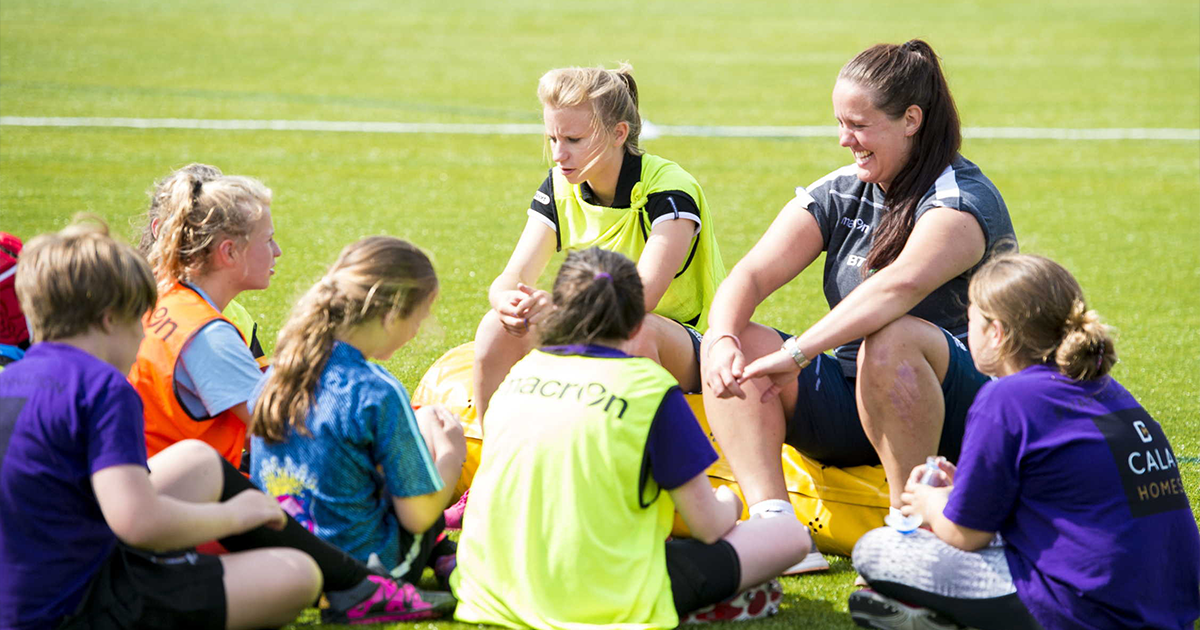Club values: how can kids contribute?

This response relates only to the question and should not be extrapolated. There is never one situation that is identical to another and sometimes even the smallest detail matters.
Question:
Zena from Geelong asks “When establishing our values at the club we want to connect with all our members, including the junior players. What are some innovative ways we can engage with the kids and get their input?”
Response:
Firstly, I really like the fact that this club is considering the junior players and members when establishing their values. This is such an important factor in the creation of club values. People want to feel they have been genuinely consulted and listened to before they will truly adopt the values and, if they have, there is a high likelihood that people in your club will embed the values into their actions.
Compiling a list of values and getting people to agree upon them can be quite some work for the committee. A few suggestions that can help speed up this process without losing any integrity are listed below;
1. Shorten the list of values to start with
A quick google search will find lists of values numbering 50-100! Save yourself some time by looking at what other clubs you admire have listed. Look at some of the top clubs around the world. You will definitely see some key overlapping values ie Respect.
2. Create a short-list
Go for a short-list of 10 values
3. Define them!
Don’t assume that everyone knows what all the values mean. A value like integrity can be understood in a number of ways. If you place your explanation of the value along-side it, then you remove confusion straight away.
4. Visit your juniors
Go to the start of the training sessions for the juniors or otherwise organise a short zoom meeting with them. Explain to them that you want them involved in the process and you are going to explain the values to them in the simplest of terms with examples related to your sport.
Your junior players will be really receptive to this process but may need to have the big picture of the clubs intention reframed to assist discussion. If coaches or adults explain that they need their help to make the club as good a place for everyone to be part of, you can then open up discussion with the following prompts;
- What do you already love about our club?
- What would you tell other kids if they asked why you play at this club?
- Can anyone describe some of the values the club has asked us to consider?
Have some basic explanations of the values ready to go so you can prompt the players when they get stuck. It’s probably easiest at this point to have a prepared list of value with a tick box next to each so the players and vote on their favourite values at this point, rather than sending them a survey at a later point.
5. Vote the list of values down to 4-5
You don’t want too many values. The more you have the less impact they are likely to have.
6. Make the voting easy
Set up a survey monkey or other web-based survey and send it to all of your members. Use some of the examples you discussed with the juniors so they can recognise them (this will help adults too). As discussed with the junior, you might consider running a session for adults where you run through the values and get them to vote at the same time
7. Share the results with the club
Take the final list back to all your members, again using a social media platform. Make sure you celebrate each stage, congratulating everyone for their responses.
8. Display them around your club
Make sure you use large signage (consider your club members and think about the need for them to be in multiple languages) Put them up on the website and social media platforms as well.
9. Live them!
The committee, coaches and officials need to role model the values. Encourage all of your leaders to find ways to incorporate the values into their roles, i.e. coaches could implement a most respectful player award etc.
10. Celebrate them!
Every time your members display the values, reward them with recognition of some sort.
**
Club values are a wonderful tool to maintain a healthy and happy club. Make sure you use them whenever you can and keep them visible to everyone. Make sure that new members are given the values when they are inducted into the club and use them to market your club to the community.
For junior players especially, encourage coaches and adults to continuously refer to the club values and consider how to establish formal opportunities to recognise players who are demonstrating the values around the club and on the field.
If your club can instil the values in younger players then you are setting the foundations for a strong, positive culture in your club. Remember that through the junior players you can set up a very powerful ripple effect. Through your work with the junior players, you have direct access to their parents and supporters, creating an authentic process for a deep understanding and adoption of your club values.
Finally, always come back to your values when you need to make difficult decisions throughout the season. If you have implemented them well you can now use them to maintain the positive culture you are establishing for your club.

Paul’s philosophy is underpinned by an empathy-based model that draws on research into the impacts of trauma and neglect on neurological and emotional functioning. His fundamental focus for all the programs he creates is on developing communities based around respect, compassion, and focusing on prevention over intervention. Read all of Paul’s responses to the Panel Of Expertise here.
While all attempts have been made to verify the accuracy of the information provided in this written response, the Panel Of Expertise panellists assumes no responsibility for any errors or omissions. Should a sports club face any difficulties as a result of acting on the advice, it is recommended that they seek out independent professional technical support to rectify the situation. The Club Respect panellists will not be held responsible for any repercussions beyond the scope of this response.